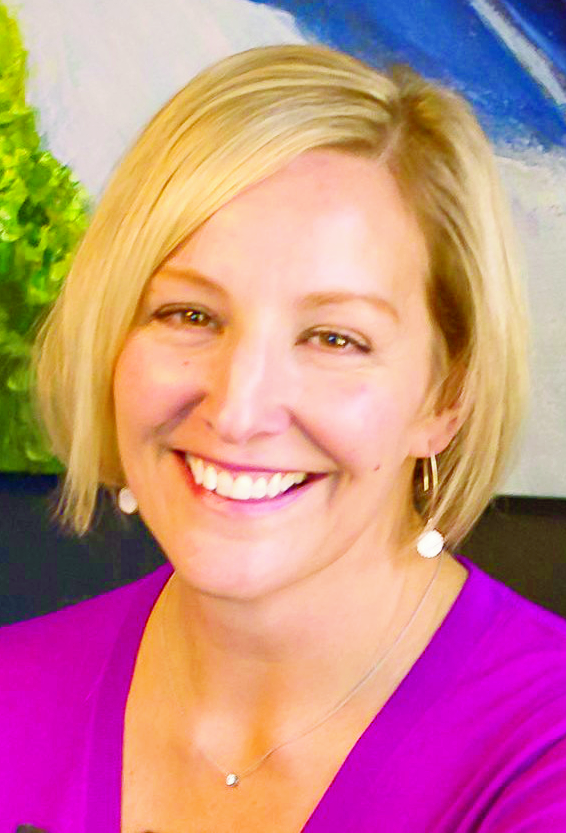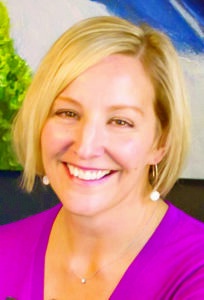Rodman Library to host Katrina Kittle in author series

KATRINA KITTLE
ALLIANCE — Katrina Kittle has always thought of herself as a writer.
Even as a young child, she was making up stories about stray animals.
Today, she has six novels – five for adults – to her credit, including her latest, titled “Morning in This Broken World” that was released in September of 2023 and was an Amazon First Reads pick.
Her other titles include “Traveling Light,” “Two Truths and a Lie,” “The Kindness of Strangers,” and “The Blessings of the Animals,” as well as “Reasons to Be Happy,” a novel for tweens.
Kittle will talk about her work when she visits Rodman Public Library on Monday, Sept. 15 at 6:30 p.m. as part of the annual Fogle Author Series. Most of her titles will be available for sale and she will sign copies that night following her remarks.
Registration is required to attend Kittle’s visit at rodmanlibrary.com.
Kittle credits her parents for instilling within her the traits that have helped her find success as a writer.
She inherited a love of books and storytelling from her dad, who encouraged her to read great books long before the same titles were required in school. Kittle says her curiosity, imagination, and passion for adventure come from her mom, who taught her always to look at the world with the discovering eyes of a child.
It has led to success in the publishing world for Kittle, who lives in Dayton.
“The Kindness of Strangers” was a BookSense pick and was the fiction winner for the 2006 Great Lakes Book Awards. Her fourth novel, “The Blessings of the Animals,” was an IndieNext pick, a Midwest Connections pick, and was chosen by the Women’s National Book Association as one of ten Great Group Reads for National Book Club Month (October 2010).
Her novels center on themes of social justice and finding family and community outside the traditional definitions of those terms.
A graduate of Ohio University, Kittle earned her MFA in creative writing from Spalding University in Louisville. She has taught many creative writing workshops, focusing on craft and motivation and has a built a reputation for jumpstarting stalled writers.
She was the 2013 John E. Nance Writer-in-Residence for The Thurber House in Columbus, Ohio, and has ghost stories to tell from living in the Thurber House haunted attic.
Katrina has taught high school and middle school English and theatre, and has worked as a house cleaner, a veterinary assistant, a children’s theatre director and costumer, in case management support for the AIDS Foundation Miami Valley (now Equitas), and in enforcement support for Miami Valley Fair Housing Association. In other lives, Katrina might have become a chef or a veterinarian.
Ahead of her visit to Alliance, Kittle answered some questions via email. Here’s what she had to say:
Q: Your bio says that you thought of yourself as a writer at a young age, but never thought about writing for publication until after college. What made you realize that you could be a writer?
A: I first studied ballet very seriously, and then theatre. I was a theatre major for two years before being invited to join an honors tutorial program in English–so all of my early “training” was in storytelling in some form or another. As an English major, I read other people’s books, which was excellent training, as was the discipline of ballet and the character development work of acting. After graduation, I was teaching high school English and theatre. I was suddenly taken hold with a story idea that wanted to be a novel. I started from the most important place I think a writer can: with an idea I was passionate about. I wanted to tell a story that put a human face on AIDS. That story became my first novel, Traveling Light.
Q: Your website describes you as such: “Author. Teacher. Animal Lover. Persister.” Can you explain the last one?
A: I had early success with my novels–five novels published in eleven years … but then came a long publishing drought. Almost a decade passed before my sixth novel found a home in the publishing world. During that time I dealt with breast cancer twice, lost my mother to dementia, and survived a global pandemic, but I never stopped writing. I have a coffee cup adorned with the quote, “Nevertheless, she persisted,” and I think that’s the motto of a writing life. I talk to my university students and my adult writing students often about how tenacity is one of the greatest tools you can have as a writer. You need to truly love words and stories, and then be prepared to hunker down and hang in there in the often discouraging publishing industry. And, while you’re persevering, never ever stop learning and polishing your craft. Always challenge yourself as a writer, keep reading, and keep putting words on the page.
Q: Your books cover some pretty heavy subject matter, including AIDS and child sexual abuse. How do you decide on what issues you will write about?
A: It feels more like the issues choose me. You spend a long time with a novel, so I have to be pretty passionate about what’s at its core. If there’s something in the real world that’s obsessing me and taking up a lot of emotional space already, I try to harness that energy and passion for a story.
Q: Can you discuss your writing process?
A: I try to write first thing in the morning–those are my magic hours. I make coffee, play with the cat, then settle in to work. I typically start a story with lots of noodling around, doing character sketches, playing “what if?” As the story starts to come into focus, like a Polaroid (remember those?) I start writing scenes, then chapters. The first draft is all about discovery and is usually too long, and very messy. Writing the first draft feels like corralling a wild animal. Once that animal is captured, I can start to “tame” in revision. I love both drafting and revision, but they’re such different beasts. Revision always takes ten times longer than I think it will! Because so much of publishing is “hurry up and wait,” I typically have more than one project going at a time.
Q: You once taught middle school. Now you teach writing with a talent for jump-starting stalled writers. What advice would you give somebody, maybe a middle schooler, who has aspirations of being an author?
A: I’ve taught middle school, high school, and now college level creative writing at the University of Dayton, as well as online courses for adult writers. The biggest advice I tell all aspiring writers is to write. To get the words on the page, to read widely, and to study the craft–but mostly just catch those words. I tell all my students: you can make it better later. First, you have to make it exist. If you just talk about a book you want to write, you’ve got nothing. As soon as you have words on the page, no matter how flawed, you can begin to revise those words and shape them into a story. Lots of people talk about the books they’ll write “someday.” Very few people actually park their butt in a chair and do the work.
Q: What can patrons expect to hear you talk about when you visit Rodman Library?
A: I plan to talk about my writing process, and a little about my backlist titles, but focus mainly on my newest novel “Morning in This Broken World.” It’s set in Ohio in the early days of COVID (but it’s not really about the pandemic; the pandemic is just the catalyst for these characters coming together). I can give examples of how real life events and people can influence decisions in fiction, and show how I built the made-up story out of real inspiration. All of my books share certain themes, and I’ll talk about how I think those themes are the reasons we find comfort and joy in reading. And I love to answer audience questions about any of my books, writing in general, my out-of-control garden, my love of apocalypse movies, or anything else!

